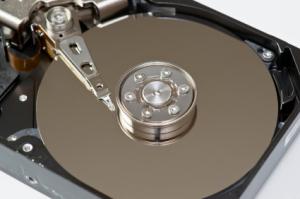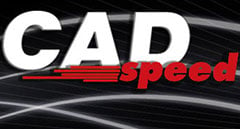Autodesk 3ds Max and Autodesk 3ds Max Design software are applications for the creations of special effects for TV and movies, video games and design visualization assets. With such broad capabilities, the software's systems requirements reflect the diverse aspects of this powerful tool.
Read More
Topics:
Workstations,
Autodesk,
RAM,
Hardware,
Graphics Card,
Multi-Threading,
Hard Drive,
Processors,
GPU,
Memory,
Graphics Cards,
3ds Max Design,
Video Cards,
Operating System,
64-Bit,
CAD
So far in this series, we’ve discussed system requirements, commonly used terms, processors, RAM, hard drives and connectivity. This installment of Hardware for the CAD Professional will continue our discussion about graphics cards.
Installation and Configuration
Read More
Topics:
Workstations,
Hardware,
Displays,
Graphics Card,
GPU,
Graphics Cards,
Video Cards,
Display,
CAD
So far in this series, we’ve discussed system requirements, commonly used terms, processors, RAM, hard drives and connectivity. The next two installments of Hardware for the CAD Professional will talk about graphics cards.
Read More
Topics:
Workstations,
Hardware,
Graphics Card,
Graphics Cards,
Video Cards,
CAD
So far in this series, we've discussed system requirements, commonly used terms, processors, RAM and hard drives. This sixth part of the series will cover connectivity.
Read More
Topics:
Workstations,
Hardware,
FireWire,
WiFi,
Connectivity,
Network,
eSATA,
USB,
CAD
In part 1 of Hardware for the CAD Professional, we reviewed the basics of system requirements. In part 2, we defined some commonly used terms. In part 3, we talked about processors and how they can affect your workflow. Part 4 helped you calculate how much RAM you need. Now, let's talk about hard drives.
Read More
Topics:
Workstations,
Hard Drive,
SSD Drive,
RAID
The latest version of SolidWorks® 3D design software offers fully integrated tools for users to easily leverage the power of 3D graphics. Using RealView, users can create realistic looking models due to real-time rendering capability of photorealistic lighting, reflection, shadowing and surface texture in the design workflow. PhotoView 360 allows users to create photo realistic images and animation.
Read More
Topics:
Workstations,
SOLIDWORKS,
Hardware,
Graphics Card,
Graphics Cards,
CAD
In Part One of this series, I talked about how 17-inch mobile workstations aren’t really mobile, but rather desktop workstation replacements that you bring to a stable destination, plug in and go to town. In Part Two, I outlined the features I would look for when selecting my 17-inch mobile workstation. This post continues our discussion from Part Three about features for 15" mobile workstations:
Read More
Topics:
Workstations,
Hardware,
Displays,
Hard Drive,
Mobile Workstations,
Backup System,
Laptops,
Display,
CAD
In part 1 of Hardware for the CAD Professional, we reviewed the basics of system requirements. In part 2, we defined some commonly used terms. In part 3, we talked about processors and how they can affect your workflow. Now let's talk about one of the most common hardware-related questions: How much RAM do I need?
Read More
Topics:
Workstations,
RAM,
Hardware,
Memory,
CAD
In part 1 of Hardware for the CAD Professional, we reviewed the basics of system requirements. In part 2, we defined some commonly used terms. Now let's look at processors in your hardware and how they can affect your workflow.
Read More
Topics:
Workstations,
Hardware,
Multi-Threading,
Processors,
Operating Systems,
Operating System,
64-Bit,
Windows,
CAD
In part 1 of Hardware for the CAD Professional, we reviewed the basics of system requirements. Now let’s look at some commonly used terms. We often hear entry level, mid-range, and high-end applied to workstations, without any clear definitions of what these mean and where the borderline between each of these categories lies. It helps to look at what each workstation is going to be best suited to do.
Read More
Topics:
Workstations,
RAM,
Hardware,
Operating Systems,
Memory,
Video Cards,
Operating System,
Windows,
CAD













